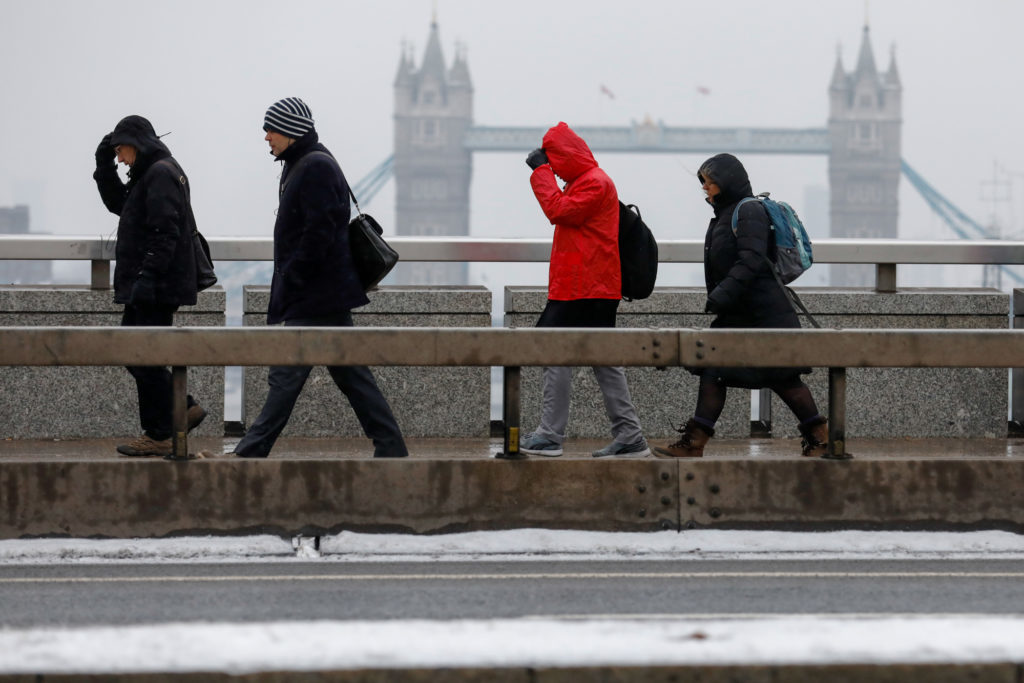
Natural gas markets have responded to a plea for fresh supplies in the U.K. after a blast of Arctic air lifted demand for heating and electricity.
The nation’s pipeline manager National Grid Plc and the government moved to reassure consumers followed a surge in U.K. gas prices for prompt delivery to the highest in at least a decade. The bout of unusually cold weather is due to continue into the weekend, with heavy snow forecast for some places in Britain on Friday.
“Demand remains high, and weather conditions are still extreme in some parts of the U.K., so we continue to monitor the market very closely,” National Grid said in a statement late Thursday. “Protecting customer supplies is always our first priority. Domestic gas will not be affected.”
Pinched supplies prompted the chemical maker Ineos Group Ltd. to reduce its consumption by 20 percent at its Runcorn plant in the U.K. Russia’s state-controlled gas supplier Gazprom PJSC said it made record deliveries into its key markets last month, including the European Union.
Gas prices rose across Europe as the chill descended from Italy to Scandinavia. For Britain, the incident highlighted the nation’s vulnerability to shortages since it lost the use of a giant gas field for storage purposes. Dutch contracts jumped to their most expensive level since at least 2011, according to broker and exchange data.
At the moment when the U.K. most needed a supply cushion to smooth out demand for gas, Centrica Plc announced a 12-hour outage at its Rough gas storage facility under the North Sea. National Grid issued a statement early in the day warning the pipeline system was facing a deficit. By Thursday evening, it said it never asked any industrial customers to cut back and that while tight, supplies were sufficient.
Britain is Europe’s biggest gas consumer after Germany. Once a major gas producer, the U.K. increasingly relies on imports during winter months as output from the North Sea falls. It’s a risky dependency when it’s cold across Europe, like this week when a mass of Siberian air pushed in.
“It certainly shows the vulnerability of extreme events,” Nick Campbell, energy risk manager at Inspired Energy Plc, said by email. “Our only other form, LNG, is not flexible in the short term. It takes time to arrive from its destination, therefore the one thing you can guarantee is volatility.”
Previously, Rough would have provided a buffer for supply shocks. The aging gas facility is due to close in the coming years and is increasingly less available. Without Rough, the U.K. is more reliant on costly liquefied natural gas — or supplies from continental Europe where the government is renegotiating its trade links.
U.K. Energy Minister Claire Perry said domestic gas supplies won’t be affected.
“I have spoken to National Grid this morning, and we are in constant contact to monitor the gas supply throughout this extreme weather,” Perry said in a statement. “So do carrying on using your gas heating and cooking meals as normal.”
Recommended for you
